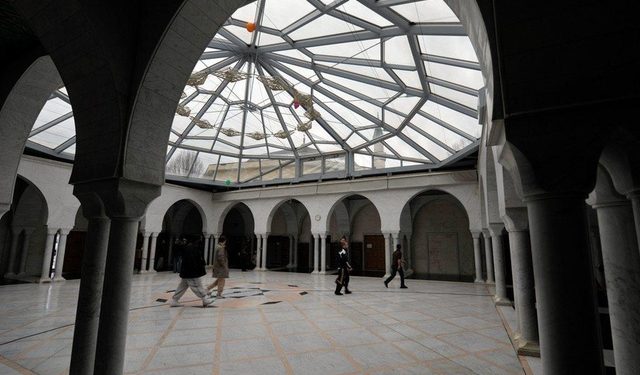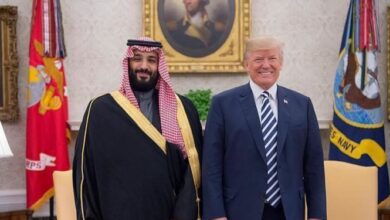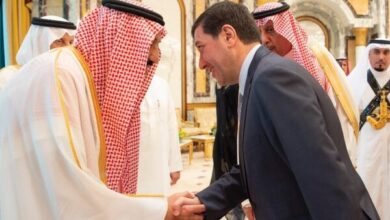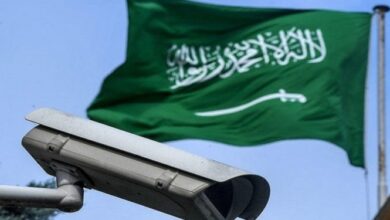Reduction of Kingdom’s position among Muslims… Stopping the financing of European mosques as a model

The policies of Crown Prince Mohammed bin Salman since his coming to power overthrow the Kingdom’s position among Muslims through an approach based on abandoning its historical obligations as the land of the Two Holy Mosques.
This highlights the decision of Bin Salman, which was implemented gradually to completely stop financing the construction and repair of Islamic mosques in Europe, in dangerous identification with the wishes of the western parties to besiege Islam and prevent its spread.
While Bin Salman stops financing the construction and repair of mosques in Europe and around the world, he is subject to the kingdom’s budgets to serve his whims and build discos, cabarets, and cinemas in the Two Holy Mosques within the framework of his recreational vision 2030.
A few days ago, the President of the Association of Islamic Universities and the Secretary-General of the League of the Islamic World stated that the former Minister of the Al Saud Muhammad al-Issa regime said that the Kingdom would neither manage nor finance Islamic mosques and centers outside its national borders anymore.
Al-Essa claimed that the Saudi funding compensation might be through participations from the worshipers or by special tenders: “The sources must be diversified if we do not want to be associated with anyone.”
The unprecedented decision of the Saudi regime will affect thousands of mosques in Europe, which are relied upon to continue their role and receive worshipers historically, to support the Kingdom.
In Germany, for example, there are more than 2000 associations affiliated to mosques, most of which are funded in Germany and the rest of Europe from the Kingdom and some Islamic countries.
The Kingdom has for many years been one of the most prominent financiers of Islamic societies and mosques in Germany, but the Saudi regime and instead of defending these institutions has been implicated in submitting to accusations by extremist Yemeni groups that mosques funded from abroad are the source of extremist ideology.
Al-Essa claimed in his statements, “without doubt, financing is by a foreign country or a specific component that belongs to this state in its origins, then this is a major mistake, and it affects national integration and national cohesion.”
The number of imams in Germany to 2000 imams, and 90 percent of them hail from abroad, but the issue of government funding for mosques is still a matter of debate among politicians.
In Switzerland, the Saudi abandoned the financing of the Geneva Grand Mosque and turned its administration over to the Swiss authorities, in a disgraceful incident that drew a lot of criticism among the Muslim community.
“The question remains,” How to? How will Muslim communities organize their affairs, given that they have not taken note of Saudi Arabia’s decision to suddenly withdraw from its funding? Especially since some countries, such as secular France, do not interfere in matters of religious centers or worship.
The former spokesman for the Grand Mosque in Paris, Hafez Wardiri, said: “This is both good and bad news. I have struggled for the independence of this mosque from the kingdom. But I am sorry that it happens without any consultation with the Muslim community. How can we find enough overnight enough competencies to run such a mosque?”
The Geneva Mosque, for example, employs 17 people and includes, in addition to the prayer hall, a conference hall, a library, a school for teaching Arabic, Quranic sciences, a wedding hall, a gym, and a morgue. And clubs for women, girls and youth. “Who can suddenly fund these activities?” The French newspaper asks.
The Kingdom also agreed with Belgium to give up the management of the Grand Mosque in Brussels, which is the largest mosque in the country.
Belgium took over the administration of the Grand Mosque of Riyadh in 1969, giving Saudi imams a way to communicate with a growing community of Muslim immigrants.
European reports have previously estimated that the kingdom was spending between two and three billion dollars annually to build and maintain mosques in Europe.





